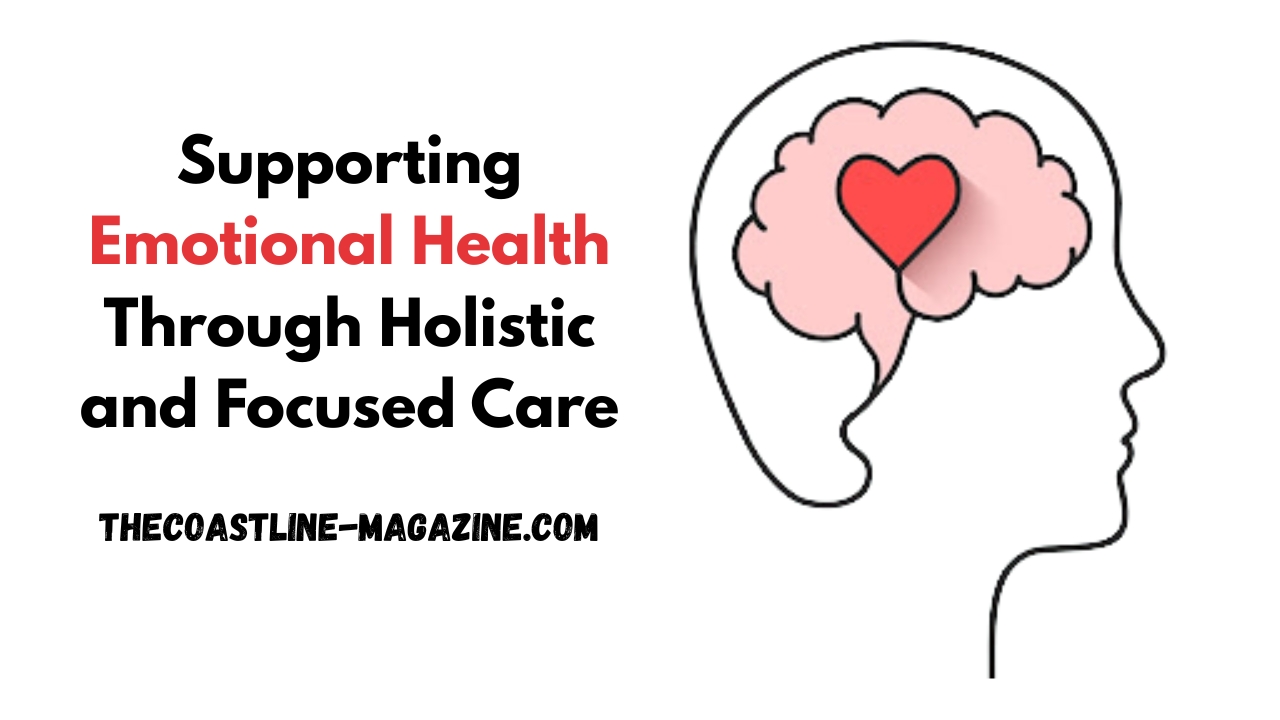Emotional well-being is not a luxury—it’s a necessity for navigating the stressors of everyday life. Whether it’s managing anxiety, building healthier habits, or simply striving for a more peaceful mind, emotional health serves as the foundation for a balanced and fulfilling life. While traditional approaches to mental wellness remain valuable, an increasing number of individuals are turning to integrative care—blending holistic strategies with focused therapeutic support—to address their unique needs.
This evolving perspective acknowledges that healing is not one-size-fits-all. Each person’s emotional journey is shaped by individual experiences, lifestyle choices, and the body-mind connection. Combining targeted therapeutic interventions with holistic practices allows people to work toward lasting change in a comprehensive and deeply personal way.
Understanding the Importance of Emotional Health
Emotional health influences how we think, feel, and act. It affects how we manage stress, relate to others, and make decisions. In today’s fast-paced and high-pressure environment, emotional regulation can often be disrupted. Chronic stress, unresolved trauma, and anxiety are increasingly common, and when left unaddressed, they can impact every aspect of life—from physical health to relationships and career success.
Rather than viewing mental health as separate from overall wellness, more people are beginning to embrace a model that integrates emotional, physical, and spiritual well-being. This shift encourages healing that’s not only effective but also sustainable. With increased public awareness, educational initiatives, and open dialogue, emotional well-being is finally receiving the attention it deserves.
Focused Care for Anxiety and Related Challenges
Anxiety is among the most prevalent mental health conditions worldwide. While occasional worry is a normal response to stress, persistent anxiety can interfere with daily functioning. It may present as racing thoughts, sleep disturbances, physical tension, and a sense of being overwhelmed.
Fortunately, focused therapeutic care offers structured and evidence-based strategies for addressing anxiety at its core. An effective anxiety treatment center provides an individualized approach, recognizing that symptoms and triggers can vary widely from person to person.
Such programs typically incorporate cognitive-behavioral therapy (CBT), mindfulness practices, and one-on-one counseling. These methods help individuals identify unhelpful thought patterns, build coping strategies, and regain a sense of control over their emotions. What makes focused care successful is not just the method, but the customization—the ability to adapt tools and techniques to a person’s lifestyle, preferences, and goals.
Moreover, supportive environments and trauma-informed care are crucial. Safe, judgment-free spaces allow individuals to open up, explore their emotions, and heal at a pace that feels right to them. Anxiety treatment centers often provide both the structure and the compassion needed for this process.
The Role of Holistic Approaches in Emotional Wellness
While structured therapy forms the backbone of focused care, holistic methods enhance the healing process by addressing mind, body, and spirit together. These practices recognize that emotional struggles often have physical and environmental dimensions, and they aim to restore overall balance.
Holistic addiction treatment programs—though originally designed for recovery settings—are increasingly being adopted by individuals seeking emotional renewal. These programs may include yoga, meditation, nutritional guidance, art or music therapy, massage, and even outdoor or nature-based experiences. Each element contributes to a greater sense of self-awareness and harmony.
Holistic therapy doesn’t attempt to replace traditional counseling; instead, it complements it by helping individuals reconnect with their bodies and environments. Activities like deep breathing, mindful movement, or creative expression can relieve physical tension, improve emotional regulation, and cultivate inner peace.
For example, yoga therapy has been shown to lower cortisol levels (the stress hormone) and improve mood regulation. Similarly, regular mindfulness practice can help rewire neural pathways to reduce reactivity and improve concentration. These benefits contribute directly to managing conditions such as anxiety, mood disorders, and burnout.
The impact of these practices is often more than just therapeutic—it’s transformative. Holistic methods encourage people to approach wellness as a lifestyle, not a temporary fix.
Why the Integration Matters
Combining focused therapeutic care with holistic practices allows for a more complete healing experience. Focused care provides structure and clarity, helping individuals make sense of their experiences and develop actionable tools. Holistic practices, on the other hand, nurture self-awareness and offer gentler, embodied pathways toward balance.
This dual approach can be particularly powerful for individuals who feel disconnected or stuck. For example, someone may intellectually understand their anxiety through therapy, yet still feel physically drained or emotionally numb. Introducing holistic methods into the equation can help bridge this gap and promote healing on multiple levels.
Additionally, integrated care fosters a sense of empowerment. Instead of relying on a single strategy or provider, individuals are encouraged to explore what resonates most with them. This flexibility allows for more personalized and sustained results. Over time, this integrative approach fosters resilience, helping individuals respond to life’s challenges with greater confidence and calm.
Creating a Supportive Environment for Emotional Growth
Emotional health is not a destination but a journey—one that requires both internal effort and external support. Whether engaging in counseling sessions, attending mindfulness groups, or participating in expressive arts, the environment plays a critical role in emotional healing.
Safe, supportive spaces encourage vulnerability, exploration, and personal growth. Whether it’s a treatment center or a small group setting, the presence of compassionate professionals and like-minded peers can make all the difference.
Furthermore, educational resources and continued learning are essential. Understanding the science behind emotions, exploring stress management techniques, and learning about nutrition, sleep hygiene, and movement can equip individuals to better care for themselves outside of structured sessions.
Families and communities can also play a supportive role by normalizing conversations around emotional health and encouraging proactive steps toward wellness.
Moving Toward Sustainable Wellness
The path to emotional wellness is rarely linear. There may be setbacks and challenges, but with the right combination of support, care, and self-compassion, progress is always possible. The most effective healing approaches don’t just aim to alleviate symptoms—they empower individuals to understand themselves more deeply and live more intentionally.
By embracing a blend of focused anxiety care and holistic wellness practices, individuals are better equipped to navigate the complexities of their emotional lives. They gain tools not only to manage their symptoms but to flourish across all dimensions of wellness.
This balanced, integrative model reminds us that healing is not about fixing what’s broken, but nurturing what is whole within us. It honors both the science and the soul of emotional health—and in doing so, opens the door to genuine, lasting transformation.

